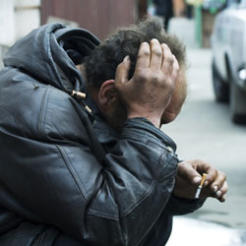The government has today said that it will invest £3.5m across 21 charities to expand a rough-sleeping initiative to eight more areas.
The No Second Night Out (NSNO) programme which began in 2011 in ten central London Boroughs and was rolled out to all London Boroughs in June. The new funding, from the Department for Communities and Local Government, will allow it to be rolled out in Manchester, Plymouth, Great Yarmouth, North Devon, Taunton, Gloucestershire, Chichester and Worcestershire.
NSNO was introduced in London with funding from DCLG and the Mayor’s office with the aim of reducing rough sleeping. It encourages the public to identify people sleeping rough and report through a 24-hour hotline or online form.
It is the second round of funding from the Homelessness Transition fund, that was announced earlier this year. The new funding includes support for two emergency accommodation services for young people, Housing First accommodation, an NSNO project and support for private homes in Plymouth, an NSNO team in Worcestershire, and improve communication between organisations in Manchester. A full list of the projects being funded is available here.
Grant Shapps said: “No single voluntary service, government agency, council or government department can prevent homelessness alone – but working together we can make a big impact.”
Alongside the announcement of the new funding DCLG published a report, Making Every Contact Count, outlining its commitment to preventing homelessness. It has identified 10 local challenges that it believes should be adopted by local authorities and organisations working to prevent homelessness. They include actively engaging in preventing mortgage repossessions including through the Mortgage Rescue Scheme and working in partnership with the voluntary sector and other local partners to address support, education, employment and training needs.
The Department for Communities and Local Government also released statistics for 2011/12 on homelessness prevention or relief showing that overall there were 199,000 cases of prevention or relief, almost 90 per cent of which were prevention.
Homelessness prevention increased by 7 per cent while cases of relief decreased by 2 per cent.










